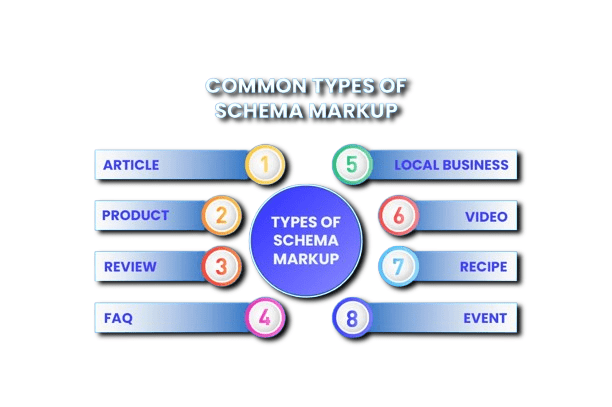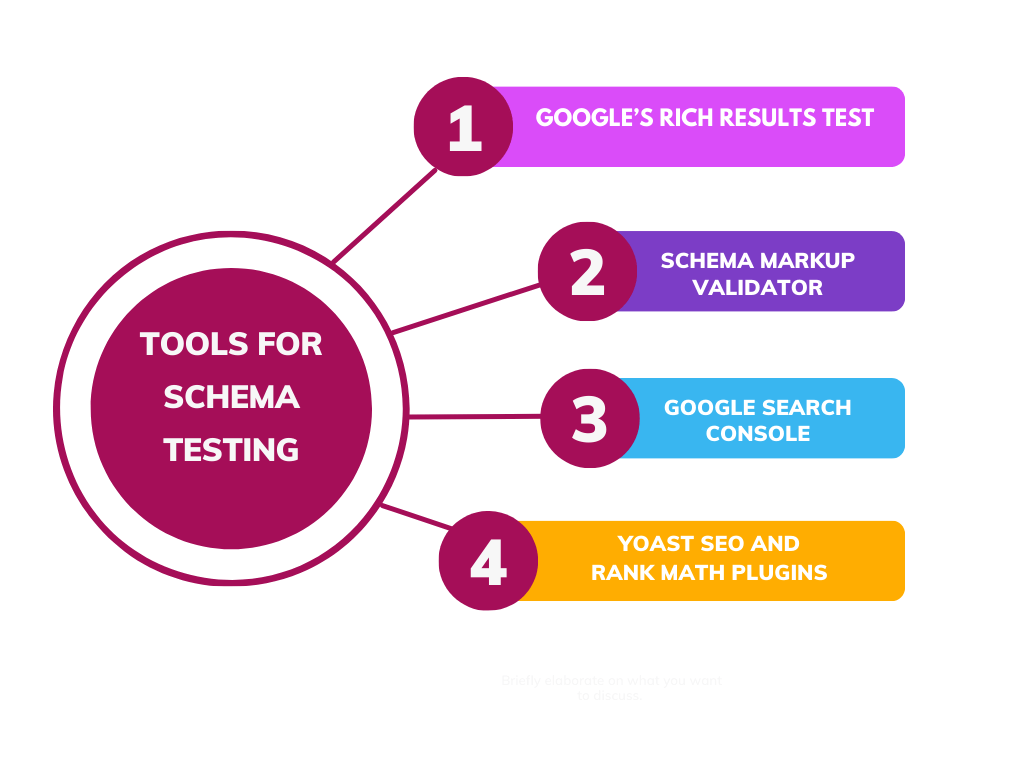
- Introduction to Schema
- Role in SEO
- Types of Schema Markup
- Implementing Schema (JSON-LD, Microdata)
- Tools for Schema Testing
- Schema for Articles, Products, Reviews
- Enhancing SERP Features
- Common Errors and Fixes
- Structured Data Guidelines
- Dynamic Schema Implementation
- Benefits of Using Schema
- Conclusion
Introduction to Schema
Introduced through a collaboration between major search engines under the initiative called Schema.org, schema markup standardizes the way we tag information. The goal was to create a universal language that developers and search engines could use to ensure consistent interpretation. Using this markup makes it easier for algorithms to understand what a page is trying to convey whether it’s a recipe, an FAQ, or a local business. It forms the foundation of modern structured data practices Digital Marketing Training in SEO and plays a vital role in how search engines index and rank content today.
Ready to Get Certified in Digital Marketing? Explore the Program Now Digital Marketing Online Training Offered By ACTE Right Now!
Role in SEO
Schema Markup is not a direct ranking factor, but it significantly influences SEO by increasing CTR (Click-Through Rate) and visibility. When a page features schema, search engines are more likely to display rich results or snippets such as star ratings, price details, or event information. These enhancements make listings more appealing and informative in the SERPs. Moreover, schema markup contributes to better indexing of content and improves the chances of being selected for voice search answers or Google’s Knowledge Graph panels, thereby supporting long-term SEO efforts.
Types of Schema Markup
There are hundreds of schema types available, each tailored for specific types of content. Choosing the right type of schema for your content is essential for driving the most benefit. Some of the most commonly used schema markups include:
- Article Schema – Used for blogs, news, and editorial content.
- Product Schema – Ideal for e-commerce pages to show price, availability, and reviews.
- Review Schema – Highlights user ratings and reviews in the SERP.
- FAQ Schema – Displays questions and answers directly under the search listing.
- Event Schema – Shows event details like date, location, and ticket availability.
- Local Business Schema – Boosts local SEO by specifying address, contact info, and business hours.
- Recipe Schema – Enhances recipe listings with ingredients, prep time, and nutrition info.
- JSON-LD (JavaScript Object Notation for Linked Data) – Recommended by Google, this format is easier to add, especially in CMS platforms like WordPress. It is embedded within a tag and doesn’t interfere with the page’s HTML layout.
- Microdata – This method requires inserting attributes directly into existing HTML tags. It’s more complex and often harder to manage.
- RDFa (Resource Description Framework in Attributes) – Similar to Microdata, this format is less commonly used but still supported.
- Google’s Rich Results Test – Allows you to check if a URL or code snippet is eligible for rich results.
- Schema Markup Validator (formerly by Google, now maintained by Schema.org) – Helps detect and correct any implementation errors.
- Google Search Console – The Enhancements section alerts you to schema-related issues for different types (e.g., FAQ, Breadcrumbs, Sitelinks Searchbox).
- Yoast SEO and Rank Math Plugins – WordPress users can automatically add and test schema with these SEO plugins.
- Articles: Including the author’s name, publish date, and headline helps qualify the article for placement in Google News or Top Stories.
- Products: Product schema supports e-commerce SEO by displaying price, availability, brand, and ratings directly in the search result.
- Reviews: Adding schema for reviews ensures the appearance of star ratings and summaries, which increases trust and boosts CTR (Click-Through Rate).
- Review stars
- Product pricing and availability
- Event information
- FAQ dropdowns
- Breadcrumb navigation
- Video previews and thumbnails
- Recipe instructions and cooking times
- Missing required fields: Schema types have mandatory properties. Failing to provide them invalidates the markup.
- Incorrect nesting: Particularly in Microdata, improper placement of tags can disrupt schema interpretation.
- Outdated schemas: Using deprecated types or properties that are no longer supported.
- Schema spam: Overusing or misusing schema (e.g., fake reviews) can result in manual penalties.
- Use schema that reflects the visible content of the page.
- Don’t mark up content that’s hidden from users.
- Avoid misleading or fake information (e.g., fabricated reviews).
- Maintain accuracy and consistency.
- JavaScript frameworks: like React or Angular, embedding JSON-LD at runtime.
- Tag management systems: like Google Tag Manager (GTM) to insert schema based on user interaction or page type.
- CMS plugins and custom scripts: that pull dynamic values such as product prices or ratings from databases.
- Increased Visibility: Enhances how your pages appear in SERPs through rich results.
- Higher CTR (Click-Through Rate): More attractive listings drive better engagement from users.
- Improved Relevance: Helps search engines accurately index your content.
- Eligibility for Features: Qualifies content for features like voice search answers, “People also ask,” and Knowledge Panels.
- Better Site Ranking Over Time: While not a direct ranking factor, it contributes to improved SEO performance indirectly.
- Competitive Edge: Sites using schema stand out against those that do not, especially in crowded niches.

To Explore Digital Marketing in Depth, Check Out Our Comprehensive Digital Marketing Online Training To Gain Insights From Our Experts!
Implementing Schema (JSON-LD, Microdata)
JSON-LD has become the most widely adopted due to its simplicity, flexibility, and ease of validation. There are three main methods to implement schema markup:
Tools for Schema Testing
Testing your schema tools in Digital Marketing Training for implementation and regularly ensures it functions correctly and is compliant with current guidelines. Several schema testing help verify if your schema is implemented correctly:

Schema for Articles, Products, Reviews
These types of markup help improve the presentation of content in search listings and enhance user engagement. Each content type benefits from schema markup differently:
Looking to Digital Marketing Training? Discover the Digital Marketing Expert Masters Program Training Course Available at ACTE Now!
Enhancing SERP Features
By implementing schema, you’re not only improving your site’s chance of ranking well but also optimizing its appearance in search results SERP Features, making it more likely for users to click through. Schema markup enables websites to appear in Rich Results or Enhanced SERPs, which may include:
Common Errors and Fixes
Fixing these errors involves consulting the latest Schema.org documentation and validating using Google’s tools. Keep your schema updated and relevant to your actual page content. Some frequent issues with schema markup include:
Structured Data Guidelines
Violating these guidelines may result in penalties or exclusion from rich results, so adherence is critical for sustained benefits. Google and other search engines offer specific Structured Data Guidelines to ensure fair and effective use of schema. Key principles include:
Preparing for Digital Marketing Job Interviews? Have a Look at Our Blog on Digital Marketing Interview Questions and Answers To Ace Your Interview!
Dynamic Schema Implementation
Advanced websites often need to implement schema dynamically, especially if content changes frequently. Dynamic schema implementation ensures that schema markup remains up to date without manual edits, especially for large e-commerce or content sites. This can be achieved using:
Benefits of Using Schema
Here are key advantages of implementing schema markup:
Conclusion
Schema Markup is a powerful tool in Digital Marketing Training but often underutilized component of SEO strategy. It helps bridge the gap between your website’s content and how search engines understand and display that content. By implementing relevant schema types using tools like JSON-LD and adhering to structured data guidelines, you can enhance your site’s search visibility, improve click-through rates, and offer a richer experience to users. As search continues to evolve toward more semantic understanding and AI-driven responses, structured data will play an increasingly vital role in digital marketing and technical SEO strategies.


